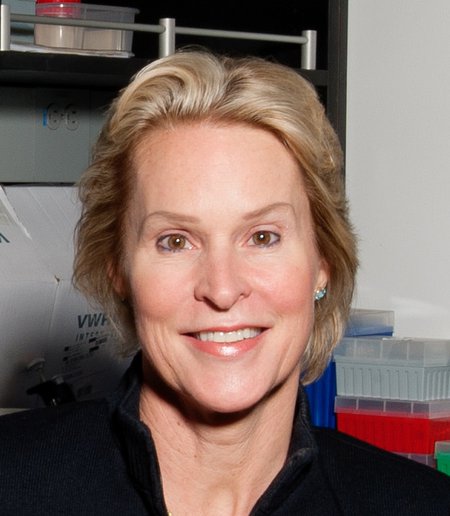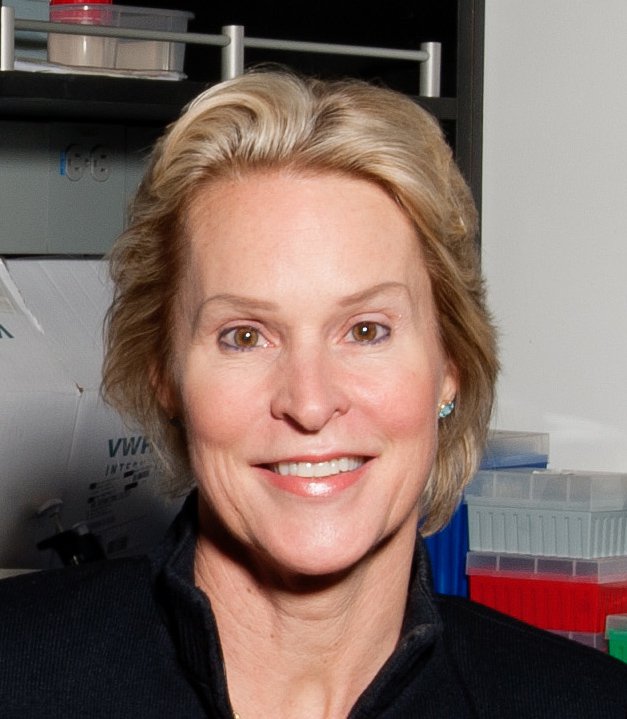Caltech Chemical Engineer Frances Arnold Awarded National Medal of Technology and Innovation
PASADENA, Calif.—Frances H. Arnold, a leader in the field of protein engineering and a member of the faculty at the California Institute of Technology (Caltech) has been named one of 11 inventors who are the recipients of the 2011 National Medal of Technology and Innovation. The announcement was made by the White House on December 21.
Arnold, who is the Dick and Barbara Dickinson Professor of Chemical Engineering, Bioengineering, and Biochemistry at Caltech, pioneered methods of "directed evolution" that are now widely used to create biological catalysts for use in industrial processes, including the production of fuels and chemicals from renewable resources. In a process akin to breeding by artificial selection, directed evolution uses mutation and screening to optimize the amino-acid sequence of a protein and give it new capabilities or improve its performance.
Arnold says her work is strongly motivated by a desire to find ways to produce fuels that can help lower carbon dioxide emissions. "I would like my children to grow up in a world that is even better than the one that I grew up in," she says. "For that to happen, we have to stop wasting precious resources and learn to live in a sustainable fashion. Biology can and should be one of the solutions."
Arnold's award brings to 13 the number of Caltech faculty members, alumni, and trustees who have received the National Medal of Technology and Innovation.
"Professor Arnold's work has led to a radical transformation in the way people understand protein engineering and what it can accomplish," says Caltech president Jean-Lou Chameau. "We are very proud of all that Professor Arnold has achieved and celebrate this recognition of her contributions."
The National Medal of Technology and Innovation was established by Congress in 1980, and complements the older National Medal of Science. The U.S. Department of Commerce's Patent and Trademark Office administers the medal on behalf of the White House.
The White House also announced the winners of the 2011 National Medal of Science. A Caltech alumnus and former chair of the Division of Biology, Leroy Hood, was among the 12 awardees. His citation brings the number of Caltech faculty members and alumni to have received the National Medal of Science to 57.
"I am proud to honor these inspiring American innovators," said President Barack Obama in the press release. "They represent the ingenuity and imagination that has made this Nation great—and they remind us of the enormous impact a few good ideas can have when these creative qualities are unleashed in an entrepreneurial environment."
Arnold says her discoveries and accomplishments were made possible by her position at Caltech, whose structure encourages work that crosses traditional disciplinary boundaries. Indeed, her work spans chemistry, bioengineering, biochemistry, molecular biology, microbiology, and chemical engineering.
She also thanks her colleagues and students. "I'm thrilled because this is a recognition not just of my work, but of the work of many people around the world who have developed and applied these methods," Arnold says. "I've also been privileged to work with a brilliant and enthusiastic group of young people over the years."
Arnold received her undergraduate degree in mechanical and aerospace engineering at Princeton University in 1979. She became interested in protein engineering during graduate school at UC Berkeley at the beginning of the biotechnology revolution, when she realized that the then-new methods of genetic engineering offered a path to solving pressing human problems using biology.
"It was clear that being able to rewrite the code of life signified a future full of fantastic technological possibilities," she says. "I wanted to be on board."
Arnold received her PhD in 1985 and arrived at Caltech as a visiting associate in 1986. She joined the faculty as an assistant professor the following year and became associate professor in 1992, professor in 1996, and Dickinson Professor in 2000. She has been honored with many awards, including the 2011 Charles Stark Draper Prize, and holds the rare distinction of having been elected to all three branches of the National Academies—the National Academy of Engineering (2000), the Institute of Medicine (2004), and the National Academy of Sciences (2008).
"Frances has made critically important contributions through her development of directed evolution," says Jacqueline Barton, chair of the Division of Chemistry and Chemical Engineering at Caltech. "It is outstanding that this work is being recognized through the National Medal."
Arnold and her fellow medal recipients will receive their awards at a White House ceremony in early 2013.
 Credit: Kyle Johnson for Bloomberg Business Week
Credit: Kyle Johnson for Bloomberg Business Week

